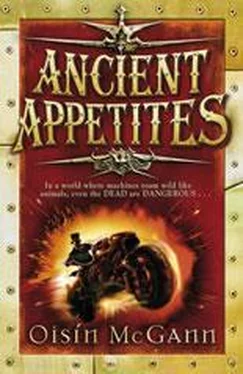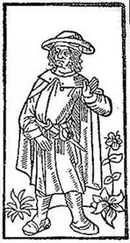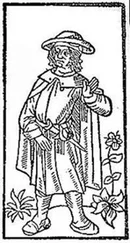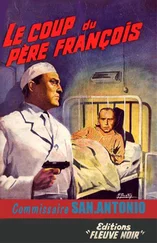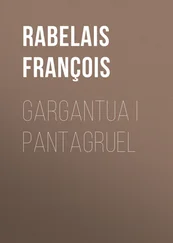But with so many of them living so long and producing proportionately large broods of children, there was fierce competition for the control of the resources of these families. And over the generations, a system of traditions had been put in place to hone these conflicts for the good of the families.
The Wildensterns were a perfect example. The eldest son of the family was the Heir, and took over as Patriarch when his father died. If there were no sons, one of the Patriarch's brothers could take his place, but sons always took precedence. The Patriarch controlled the family's resources and distributed the wealth and responsibilities as he saw fit. If the next son in line thought he could do a better job or, more to the point, was greedy enough to try it, he had the right to kill his brother and ascend to the position of Patriarch. The family would see to it that the death was ruled an accident, and no outside authorities would be permitted to involve themselves.
The same went for any male member of the family. If he wanted to improve his position, he could kill his way closer to the top. It was a tradition that had endured for centuries, and was seen as an essential way of honing ambition and ability, and rooting out any of the few weak individuals that arose in each generation.
It was not as straightforward as plain murder; there were some strict rules laid down – the Rules of Ascension – and anybody who failed to follow them would be ostracized – barred from any further contact with the family. Also, every male member of the Wildenstern clan within conceivable reach of the title was trained from birth in the techniques they would need to defend themselves, so it was not as if they would be easy targets. These skills included, but were not limited to, mastering unarmed combat, fighting with a range of edged weapons and firearms, the mechanics of trap-setting and the chemistry of poisons. These were taught with the emphasis on protecting oneself, but Nathaniel had gradually come to understand that if he should feel the need to use his skills to advance his position, the family would understand.
Female members of the family could not hold any positions of importance apart from those of wife and mother, but they were welcome to assist their male relatives as they saw fit. Some also chose to take advantage of the training where they could.
Edgar Wildenstern, Duke of Leinster, was the current Patriarch – and it was expected that he would hold the position for some time to come. At 123 years old, Nathaniel's father had survived countless duels, several assassination attempts – including stabbings, shootings, a house fire, a crossbow bolt, a poisoning and a mathaumaturgical curse – and had outlived three wives (at least one of whom was thought to be every bit as fierce as he was). Apart from his advanced years and growing obesity, he suffered from gout and syphilis, was deaf in one ear, blind in one eye, was missing his right hand, and limped on a twisted left leg. And still he was considered indestructible.
It had been decades since anybody had made any attempt on his life, or on the lives of his remaining children, as Edgar had imposed order on his house with a will of iron. His fifty-year climb to the top had been marked by one of the most bloodthirsty periods in the family's history, during which he had killed two of his brothers, and had been forced to do away with three of his own sons and one of his daughters in self-defence. The remaining two sons from his first marriage had been exiled for breaching the Rules of Ascension and had not been heard of since. He had decided that enough was enough, and had made it clear to the family that there would be harsh punishment for any further transgressions. They would all just have to wait for him to die of old age.
It seemed to Nate that the old man had been in a bad mood ever since. And the recent death of his favourite son would have done little to improve his temper.
'Shall I wait, sir?' the lad asked.
'What?' Nathaniel replied absent-mindedly.
They had reached his father's floor. The lift doors were standing open.
'Shall I wait here for you, sir?'
'No, thank you. I may be gone for some time.'
He stepped forward, turned, and made his way slowly down the gloomy corridor towards the door to his father's study, which faced him at the far end. He rarely came up to this floor. Much of it was off limits to everyone but Edgar and his small cadre of slaves. It was always dimly lit, and the decor was… unsettling. The walls were lined with dark oil paintings of ominous biblical scenes, particularly those of the Old Testament. The design of the carpets and the wallpaper suggested sharp edges and raw flesh. Wildenstern Hall was riddled with hidden rooms and secret passageways, and Nate suspected that this floor had more than most. When they were younger, Nate and Roberto would talk in hushed tones about how they sometimes thought they heard a ghostly wailing from the vast attic above their father's quarters. Nate shuddered at the memory of those sounds.
The door opened as he drew near to it, and a large man in an expensive but tasteless suit, carrying a bowler hat, emerged from the room. His chest and shoulders bulged under the well-cut jacket. His dark, oiled hair was slicked back from his broad face and a neatly trimmed moustache perched on his top Hp. The expression in his eyes was more akin to that a reptile than a human.
'Master Nathaniel,' he smiled, showing a mouth interspersed with gold teeth. 'A pleasure, as always!'
'Mr Slattery' Nate nodded to the man and went to walk past.
The man didn't move out of his way.
'Looks like you've moved up a rung, Master Nate. You'll do well out of this, I expect, eh?'
Nate glared at him. Slattery worked for his father. He was a bailiff, but Nate knew there were other kinds of work he carried out – more secretive work. There was a hardness and a cruelty to the man that unnerved him.
'You're in my way' he muttered through gritted teeth.
'So I am, so I am. Sorry about that.' Slattery stepped to one side. 'Just wanted to pay my respects to your father. He was as sound as a bell, your brother was. A fine fella, and no mistake. He'll be sorely missed.'
Slattery was a Dubliner who'd spent time in Liverpool, and it had given him a strange mix of accents.
Nate nodded again and brushed past him. The bailiff was making his way down the corridor when he stopped and looked back.
'So I reckon you'll be off in his place, eh, Master Nathaniel? You'll remember old Slattery when it's you that's makin' the decisions, eh?'
The nerve of him, the conniving crawler. Nate ground his teeth. Marcus wasn't even in his grave, and the man was already trying to curry favour with the new bosses. Slattery stood at the door to the elevator, looking expectantly at him.
'I doubt I'll be making any decisions that concern you,' Nate snapped at him. 'And I think you'll find the servants' elevator is at the end of the corridor. Good morning to you.'
Slattery's expression froze, and Nate was struck with the certainty that he would be regretting that remark before too long. He put it to the back of his mind. There was enough to be worrying about. Knocking on his father's door, he steeled himself for what was to come.
'Enter!' a voice barked.
And he did.
There was a giant, dark-brown bull mastiff lying just inside the door, and Nate stepped over it gingerly. Two more of the dogs, one tan-coloured, the other black, lay before his father's desk. The room was huge, with a vaulted ceiling supported by carved oak beams. The walls were lined with bookshelves, hunting trophies and paintings, and above the fireplace, a display of arcane weapons from all over the world.
In the corners of the room behind the Patriarch stood two elegant black men – taken as young children from a Maasai tribe in Kenya – each nearly seven feet tall and dressed in the uniform of a footman. Trained from childhood to serve and protect their master, they would wait silent and unnoticed until he beckoned them.
Читать дальше
